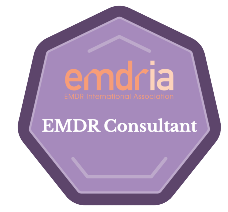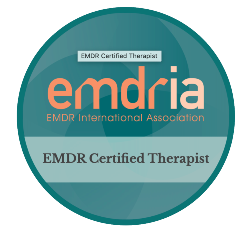How to Prepare for EMDR Therapy
Are you considering EMDR therapy (Eye Movement Desensitization and Reprocessing therapy) to address a trauma history, anxiety, loss or another emotional disturbance?
If you have begun the process of looking for an EMDR therapist and are either still searching, or are waiting to begin the therapy, you may find yourself wondering what you can do to prepare for the EMDR in the meantime.
What is EMDR Therapy?
EMDR Therapy helps the brain to organize experiences that are causing flashbacks, nightmares, anxiety, and other disturbing symptoms and helps the brain to store that information in more adaptive ways. In essence, it takes the charge out of difficult experiences so that calming resources and adaptive reasoning can be better accessed.
What is the EMDR Therapy Process?
Many people assume that they can come in for EMDR therapy and during the first appointment, they will begin the EMDR. That assumption is true in that the clinician is beginning the first couple of phases of EMDR by starting the intake of history, beginning the treatment planning, and preparing the client for the work. That said, the actual process of accessing memories to address with the EMDR therapy and beginning the back-and-forth (bilateral) eye movements to reprocess the memory, does not begin until the first few phases of the work are complete. This is typically not until the second or third session, and in some cases, not until much later than that.
What is the Expected Result?
The process of doing EMDR therapy can stir up some emotions that were experienced at the time of the trauma, sometimes making clients more sensitive for some time while doing the EMDR, before the symptoms begin to subside. As a result, therapists like to make sure that clients can access good coping skills and supportive resources before beginning the work. Qualified clinicians will spend time helping the client prepare for EMDR by assessing for these coping skills, and teaching new coping skills in the early phases of the therapy so that clients will have the best success with the EMDR.
So what can you, the client, do to begin to prepare for EMDR?
Although the bulk of the preparation will take place in the therapy sessions, you can either continue, or begin to practice, good self care. This includes spending time each day in a relaxing activity such as going for a walk outside, practicing yoga, talking with a friend or supportive loved one, or practicing some breathing exercises. It is a bonus if you eat a healthy diet, limit sugary and processed foods, and try to get some sleep. A few things I recommend at the onset of the counseling are the following:
- Know your support system. Who can you call when feeling stressed or sad? If no one comes to mind, keep a log of some of your thoughts that you would like to share when you come in for therapy.
- Engage in some kind of stress reducing body movement each day. This can be a walk in nature, taking time to stretch each day, practicing yoga, or just dancing around the house to music you enjoy. Movement is incredibly cathartic!
- Try to get into the habit of taking ten minutes each day to practice breathing exercises or meditation. Did you know that meditation helps to stimulate new, more adaptive neuronal networks in the brain? It does and it helps!
- Try to start a gratitude journal. Even though you may be stressed or suffering right now, try to find one thing, or more, each day for which you are thankful. It can be as small as how comfortable your socks feel on your feet, to how wonderful the love from your dog feels when he or she greets you at the end of the day. Whatever it is, write it down and bring your list with you to therapy.
There is so much information on the web about self-care, that it is often taken for granted, or it’s value is minimized. Engaging in self-care actually strengthens adaptive networks in the brain, enabling a more fluid process with the EMDR therapy. The resolution of traumatic memories will come more easily with greater resources. Whether you feel you can begin the preparation now or not until you meet with your therapist, an important part of the therapy is developing those healthy resources and your therapist can help you with that process. Know that your story is unique and valuable and that it is possible to overcome seemingly insurmountable challenges. The human spirit is tremendously resilient, and EMDR therapy is a wonderful therapy to capitalize on that resilience.
Click here or more information on research about EMDR therapy and EMDR therapy training.





